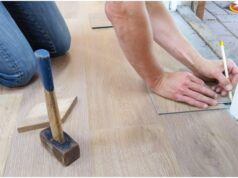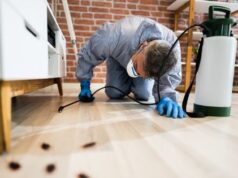Ever notice how your AC unit’s cooling feels a little humid sometimes? Or wondered why there’s an occasional ice buildup inside your machine? These occurrences may be signs that there’s damage within your system. But do you know what causes these air conditioner problems?


Many things cause the decreased performance or malfunctions of your AC system. These reasons range from leaking refrigerant lines to neglecting regular maintenance. Continue reading to learn about the common factors that result in air conditioner damage. If you notice any of these signs, reach out to a local HVAC repair expert to get your unit fixed.
Duct and Refrigerant Leaks
There are different types of leaks that affect your AC’s overall efficiency. These variations typically involve the unit’s ductwork and refrigerant.
Duct Leaks
Cold air goes through your AC’s ductwork, which the system distributes to provide a chilly temperature. Sometimes, subpar installation and rodent bites cause duct leaks, resulting in poor cooling power. If you don’t detect the incident early, you may experience reduced comfort due to your system’s low efficiency. The leak will also cost you money, as your energy bills will stay the same despite your system’s performance.
Refrigerant Leaks
Refrigerants are vital to every air conditioner’s cooling function. The chemical absorbs heat from the atmosphere and helps create cold air. Its amount should always be at the recommended level for your system to operate smoothly. If your refrigerant levels are below normal, then there’s a good chance that there’s a leak in your system. This occurrence damages not only your unit but also the environment.
Clogged Drain Line
Your AC system’s drain line expels excess moisture outdoors. When clogging occurs in the small pipes, there can be a few mishaps with the machine’s air transfer. Accumulated water can also leak into your home’s walls and ceilings, resulting in structural damage. Another consequence is potential mold buildup inside your house.
Thermostat Miscalibration
The thermostat serves as your air conditioner’s central control system. It shows you the unit’s temperature level, fan movement speed, and other built-in modes. Using the thermostat may seem pretty basic, but be aware that incorrect use can result in AC damage.
When calibrating your thermostat, remember to always set its temperature at a balanced level. The ideal setting should be somewhere close to the outdoor temperature, which reduces system strain. You can always choose the mode you want, but if you’re prioritizing your AC unit’s health, try to follow the recommended settings.
Using the Wrong AC Size for Your Home
When shopping for a new unit, one factor you should prioritize is the size of the system. The AC you choose should suit your abode’s dimensions, as the wrong fit can present some problems.
A smaller unit operates harder to meet the expected efficiency. Meanwhile, a larger one wastes energy and leads to higher bills. Constantly fiddling with both systems to find the optimal setting can lead to unfortunate damage. Make sure to choose the right air conditioner for your home to save on reinstallation and repair costs down the line.
Not Doing Routine Maintenance
A simple cause of AC damage is neglecting system check-ups. Like most pieces of equipment, your unit needs regular maintenance to keep it in tiptop shape. Doing inspections lets you detect any signs of wear, tear, and anything else that needs repair. A small problem can grow into a big one when not fixed during its early stages. What could’ve been a quick repair can become a major issue that costs a lot of money.
Dirty Air Conditioning Filters and Condenser Coils
Filters and condenser coils are instrumental in your unit’s air transfer process. Filters catch pollutants from the air and prevent the agents from circulating indoors. Condenser coils expel hot air outside of your home. Over time, dirt accumulates from both of these components. When vital parts of your air conditioner are filthy, the AC’s performance will suffer. This poor efficiency means lower temperature and comfort levels indoors.
Talk to an HVAC Repair Expert
Understanding the causes of air conditioner damage can help you develop solutions for each one. Knowing the common signs allows you to prevent system troubles through proactive fixes. These methods can include regular cleaning, inspection, leak checks, and unit maintenance. Calling professional assistance is also essential for more severe cases.
If your system experiences signs of damage, always seek help from reliable HVAC technicians. Contact your go-to air conditioner contractor for expert repair and overhauls. Your trusted professional can also offer you advice on proper system maintenance.









